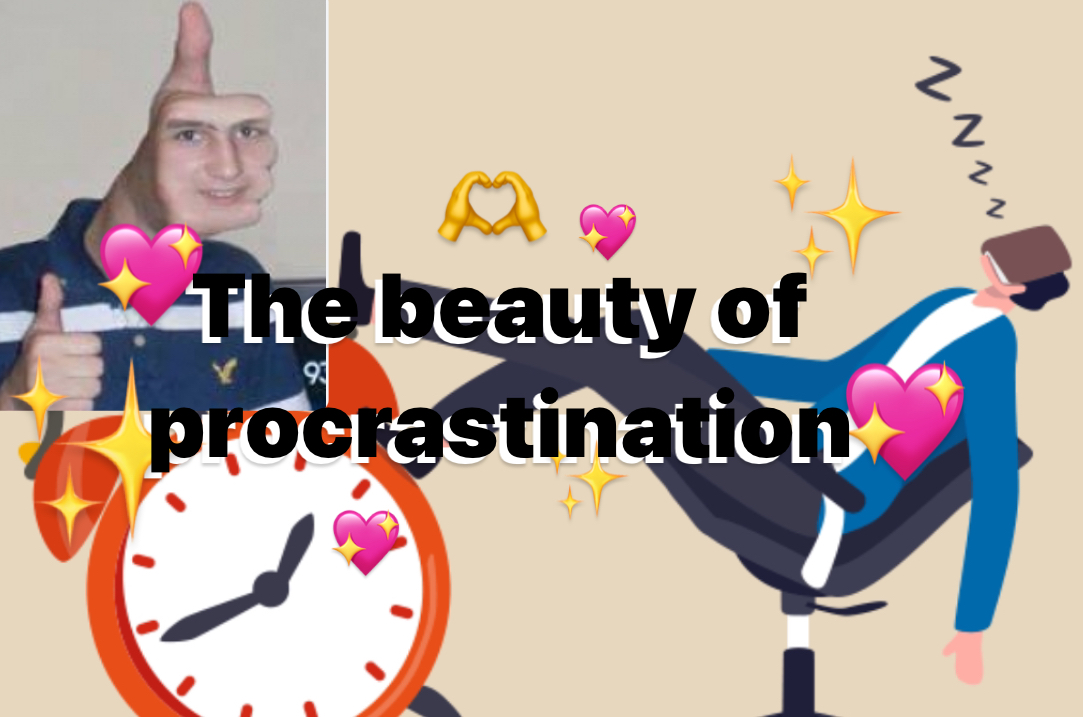Procrastination is something that I very much struggle with. As I’m writing my 3rd article at 2 am that are due tomorrow I start to rethink what got me to this point. Laziness, putting it off for later, genuinely forgetting about it, etc. All this has got me thinking, the articles I put out are pretty good. I feel like for some reason when being put under a tight deadline I work extremely well. So I used my sleep deprived and caffeinated brain to use to research if this is an actual thing. Surprisingly enough there are ways in which procrastination can actually benefit people. Here they are!
Procrastination can Improve Creativity
As a high schooler procrastination is probably built into my DNA at this point. But, sometimes procrastination can spark creativity. From what I researched when we delay a task our brains keep it in the back round of our thoughts. This often leads to unexpected bursts of inspiration. In those last few hours, the brain kicks into high gear, connecting dots and generating unique ideas that might not have surfaced earlier. This pressure-induced creativity can result in innovative approaches to problem-solving.
The “Best Inspiration”: the Deadline
Procrastination can also serve as the greatest motivator. The impending deadline forces us to focus and work efficiently. This ends up tapping into our ability to perform well under pressure. When you procrastinate for an article for example your brain is working in speed drive. Under any normal circumstance I would never be able to finish 4 articles within 6 hours. Yet when under such a time crunch (they’re all due in less then 5 hours) I’m somehow able to posses this super student ability that I always knew that I had.
Statistics on Procrastination
According to a study by the American Psychological Association, only a shocking 20% of people identify themselves as chronic procrastinators. I personally believe that they asked a bunch of liars who can’t admit their flaws. Anyways, a study conducted by researchers at the University of Calgary found that moderate procrastination can sometimes lead to more creative problem-solving. I’m going to show these to any teacher who says procrastination “isn’t being a good student” or “contributes to poor mental health” or any of that nonsense. The results don’t lie.
Final Thoughts
It’s obviously important to manage time wisely when it comes to assignments to avoid cramming 3 articles in one night. However, occasional procrastination might not be as harmful as commonly believed. It can ignite creativity and act as a catalyst for productivity under pressure. I would say that here balance is key. Embrace your ability to procrastinate in moderation, but try to meet in the middle between delayed tasks and timely completion. After all, sometimes the best ideas arise when you least expect them, even in the midst of procrastination.









